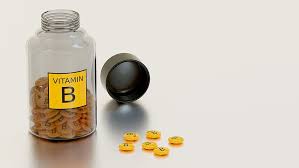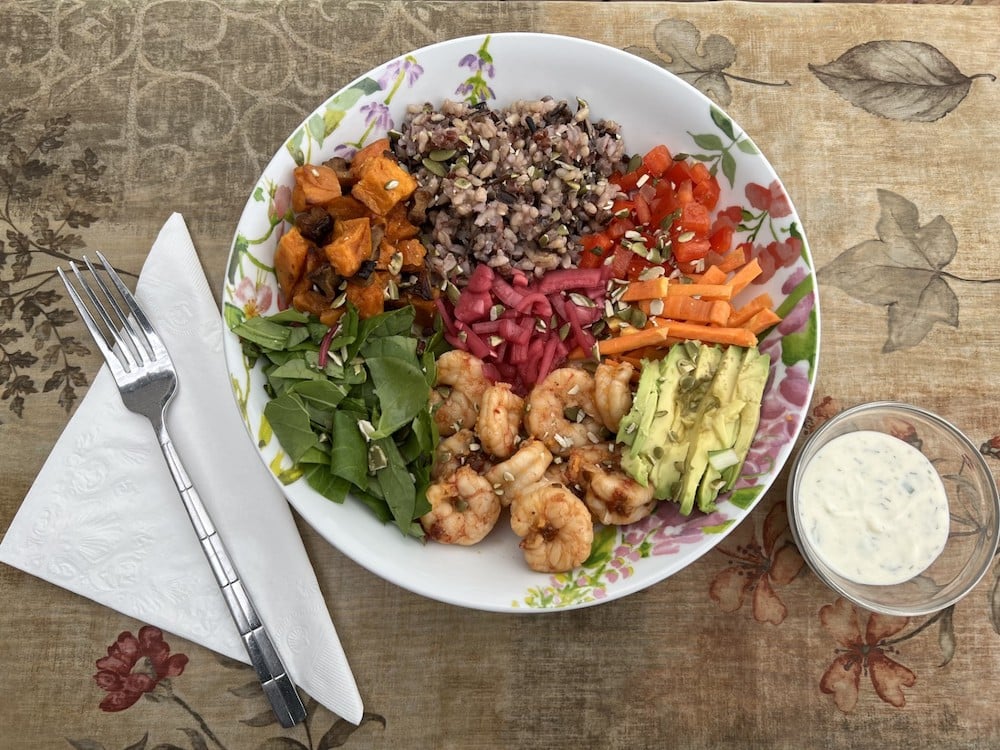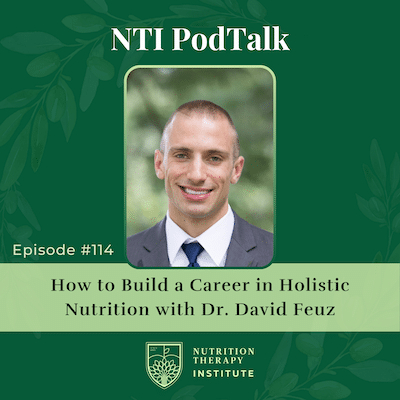
Share this post!
Pandemic. Novel Coronavirus. COVID-19.
Holy cow! The news around the entire world is dire and catastrophic, isn’t it?
Most of us are actually afraid to turn on the news, because listening to it leaves us feeling hopeless and scared.
When the news gets overwhelming I want to remind you of one very important fact…..you have an immune system and its primary role is to keep you healthy! It’s important to remember that there are things that you can do to keep your immune system in tip-top shape, so that it can do its job properly….which is fighting off foreign pathogens.
However, it’s also vitally important to understand that stress (short-term or prolonged) can weaken your immune system, preventing you from being optimally healthy.
This is where knowledge of nutrition therapy can be very valuable.

The immune-centered vitamins that can become depleted during times of stress:
- B1 (thiamine)
- Promotes the polarization of macrophages into strongly microbicidal, classically activated phenotype, and increases their expression of TNF-α and IL-6 via regulating NF-κB signaling in a PPAR-γ-dependent manner
- That’s very fancy ‘medical-eze’ for really important vitamin to kill bad pathogens
- Promotes the polarization of macrophages into strongly microbicidal, classically activated phenotype, and increases their expression of TNF-α and IL-6 via regulating NF-κB signaling in a PPAR-γ-dependent manner
- B6 (pyridoxine)
- Responsible for your body’s production of white blood cells, including T cells. These cells regulate immune function.
- Additionally, B6 helps your body make a protein called interleukin-2, which helps direct the actions of white blood cells (which are your immune cells).
- Vitamin C
- Supports epithelial barrier function against pathogens and promotes the oxidant scavenging activity of the skin, thereby potentially protecting against environmental oxidative stress.
- Also accumulates in phagocytic cells, such as neutrophils, and can enhance chemotaxis, phagocytosis, generation of reactive oxygen species, and ultimately microbial killing.
- Another fancy ‘medical-eze’ explanation to show how this vitamin kills the bad guys.
- Vitamin E
- Responsible for increased lymphocyte proliferation, immunoglobulin levels, antibody responses, natural killer (NK) cell activity, and interleukin (IL)-2 production.
The immune-centered minerals that can become depleted:
- Magnesium
- Immunology research shows that magnesium plays a key role in the immune response, especially as a co-factor for immunoglobulin synthesis.
- Zinc
- Crucial for normal development and function of cells mediating innate immunity, neutrophils, and NK cells.
- Phagocytosis, intracellular killing, and cytokine production all require adequate zinc levels.

Knowing that these key nutrients can be depleted during times of stress, it will be important to add them to your diet on a regular basis.
Foods rich in Vitamin B1:
- Fish
- Meat
- Legumes (soaked overnight before cooking)
- Nuts and seeds
Foods rich in Vitamin B6:
- Organ meat (liver)
- Fish
- Starchy vegetables (sweet potatoes and potatoes)
Foods rich in Vitamin C:
- Red bell peppers
- Citrus Fruit
- Kiwi
Foods rich in Vitamin E:
- Sunflower seeds
- Almonds
- Hazelnuts
Foods rich in Magnesium:
- Kale
- Spinach
- Avocado
Foods rich in Zinc:
- Oysters
- Lobster
- Crab
- Lentils and chickpeas can also be a good source as long as you soak overnight, and rinse, before cooking.
Of course, it’s important to manage stress and support optimal immune function every day, but in these trying times, it’s really important to focus on these strategies.
Three strategies we can use, starting right now, to minimize our stress response:
- Exercise
- Good quality sleep
- Relaxing activity
We all know it’s important to exercise, but sadly, too few people exercise on a regular basis.
If you don’t exercise on a regular basis, maybe this will be the incentive to start.
Key functions of exercise and immune health:
- Helps flush pathogens out of the lungs and airways.
- This may reduce your chance of getting a cold, flu, or other illness.
- Causes a spike in Human Growth Hormone
- Growth hormone plays an important role in the development of the immune system. Studies suggest that growth hormone may promote growth of the thymus, a gland responsible for the production of important immune cells called T cells.
- Improves blood circulation.
- This allows the cells and substances of the immune system to move through the body freely and do their job efficiently.
Sleep is another area where most of us could use some improvement. The science behind sleep is strong. Poor sleep habits increase stress and decrease immune function.
3 tips to improve sleep function:
- Minimize blue light exposure from cell phones, tablets, computer screens, etc. 1-2 hours prior to going to bed. The blue light disrupts your circadian rhythm and melatonin production, which impairs your ability to fall asleep successfully.
- Conversely, increase bright light exposure during the day. This can be easily done by getting outside during the day. Maybe take a walk on your lunch break…or do a quick 10-minute break in the morning and afternoon to get up from your desk and go outside. This improves your circadian rhythm and melatonin production.
- Drop your sleeping temperature. Many studies show that temperatures much above 68F hinders your ability to have good, restorative sleep. It appears that the ideal sleeping temperature is 65-68F.
The final thing to discuss when it comes to reducing stress is to find an activity, any activity that you like, and do more of it.
Is it gardening? Great…..do that.
What about bike riding? OK….do that.
Reading. Coloring. Yoga. Meditation.
It really doesn’t matter what activity you choose….it only matters that you choose one and do it consistently. When doing so, this helps to reduce your cortisol levels. Which, in turn, reduces your stress levels. Which, in turn, improves your immune function.
See how connected everything is? When you choose to garden, or play your favorite music, or read a good book, you are choosing to improve your immune function. And, when you improve your immune function, you have the natural tools necessary to fight pathogens that come your way.
So, instead of feeling hopeless and scared with the news that’s on the television, empower yourself with the skills you need to improve your immune function.
If the journey seems daunting initially, please know that there are incredible nutrition therapists out there who will be happy to walk with you on this journey to improved health.
You’ve got this…..but it’s up to you to take that first step.
As my gift to you, here is an easy recipe, with easy to find foods, to boost the nutrients that are likely depleted during times of stress.
Bon appetit!

Sweet Potato Chickpea Hash
This colorful hash is filled with nutritious, vitamin-filled produce. For a fast morning, prepare the hash the night before and reheat it with the spinach in the morning.
Ingredients
- 1½ large sweet potatoes, diced
- 2 cups canned chickpeas, drained
- ½ small yellow onion, diced
- 1 red bell pepper, diced
- 2 cloves garlic, minced
- 2 tbsp coconut oil, melted
- ½ tsp ground cinnamon
- ½ tsp sea salt
- ½ tsp ground black pepper
- Pinch chile powder
- 2 cups loosely packed baby spinach, divided
Preparation
1. Preheat oven to 425°F. Line a baking sheet with parchment paper.
2. In a large bowl, combine sweet potato, chickpeas, onion, bell pepper, garlic, oil, cinnamon, salt, pepper and chile powder until well mixed. Spread mixture in an even layer on baking sheet. Bake until sweet potatoes are tender, 20 minutes.
3. When ready to eat, add 1 cup spinach to 1 portion of the hash and toss together on baking sheet or skillet. Reheat in the oven or on the stovetop until just heated through.
Thank you, Jesse Lane Lee, for sharing this yummy recipe.
Related reading…
Nutrition Therapy Strategies to Ward Off Flu Viruses
10 Immune-Boosting Foods to Survive Cold and Flu Season
About the author: Dr Becky Spacke is a course instructor at Nutrition Therapy Institute. In addition, she has a private practice focusing on the needs of those with Alzheimer’s Disease, or at an increased risk of developing Alzheimer’s Disease. You can learn more about her practice by visiting HealingFromAlz.com
Turn your passion into a career!
Join us for a free one hour informational webinar that covers all you need to know about NTI – our programs, our courses, our online and classroom options, and our tuition, and more!
Images: Healthy fresh food by Allie is free for use by Unsplash; Image by MasterTux is free for use by Pixabay; Image by linsight is free for use by Pixabay; Permission to use Sweet Potato Chickpea Hash given by The Circus Gardener’s Kitchen
Share this post!


















